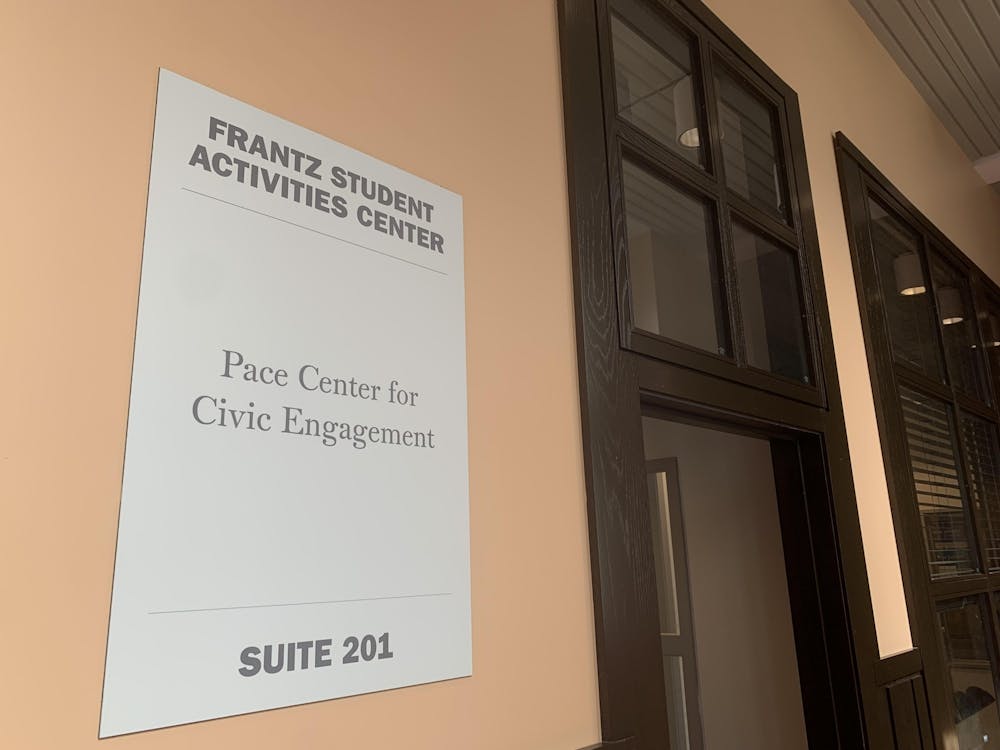The following is a guest contribution and reflects the author’s views alone. For information on how to submit to the Opinion Section, click here.
Last month, The Daily Princetonian published an article titled “Some first-years, orientation leaders critique Community Action orientation program” which headlined the Friday, Sep. 16, 2022 print edition. It included criticism from first-year students and orientation leaders about the service opportunities offered on Community Action (CA), the messaging that frames the program, and the leadership of the Pace Center for Civic Engagement.
These criticisms of CA do not square with my experience as a CA orientation leader. I do not seek to discredit or invalidate the concerns and experiences of the first-years and orientation leaders featured in the ‘Prince’ article, but I believe it is important to highlight that the type of small-scale service that CA elevates is valuable and should continue.
My subgroup’s theme was the Essential Needs of Refugees, and all our service activities were directly relevant to that topic. We joined seven other groups at the Archdiocese Youth Retreat Center (AYRC) right outside Newark, N.J. Over the course of our four days there, my group of 11 first-years and two sophomore group leaders participated in a diverse array of service and educational activities. Between those events, we engaged in traditional Princeton orientation events: the famous “Brave Spaces” in which students share their fears about entering Princeton, team-building exercises, and way too many games of Mafia.
It was a whirlwind of tightly-scheduled activities. With so much to do in so little time, it’s inevitable that CA has more breadth than depth: the charge that seems to undergird much of the criticism from my peers.
The Pace Center responded to some of these critiques by noting that CA’s main goal is to provide experiences for students that excite them about the prospect of potential future avenues for community service. As Kimberly de los Santos, the Executive Director of the Pace Center, wrote in her Letter to the Editor, “as students learn about and become part of the local community, they become better equipped to co-create service projects with community partners that are responsive to dynamic community needs.”
This may be true, but de los Santos didn’t address the brunt of student criticism from the article: the superficiality of CA. By emphasizing CA’s primary goal as encouraging students to carry out future service, de los Santos seems to concede that CA service is more valuable for Princeton students than the communities we hoped to serve. De los Santos even went so far as to say that “we have learned over the last 20 years at the Pace Center that unprepared student volunteers and sporadic engagement can in fact harm communities,” implying that the Pace Center is more interested in harm reduction rather than actually helping communities.
I reject the idea that a small-scale CA service project can’t meaningfully help both students and communities. My CA group was located at the Vineyard Baptist Church in Newark. When we arrived on the morning of our third day, we were warmly welcomed by the clergy and the church staff. Most of them were on the older side and were excited to have the help of young and energetic people who were willing to do manual labor. They set us to work in their backyard garden.

Throughout the morning, we hand-tilled the stony soil with heavy pickaxes. A few first-years were also set to work clearing a small mountain of rubble and rubbish, making dozens of trips trundling overflowing wheelbarrows. Finally, we placed stakes for two additional plots’ worth of vegetable gardens, which would be put to use feeding the community with farm-to-table food. In the end, we made a sizable dent in that little backyard at the end of two hours. Two new vegetable gardens stood, where before there had been only piles of debris.
CA participants complained to the ‘Prince’ that “two hours of subpar community service is not sufficient to start legitimate change.” Our CA group’s project was hardly subpar, and I feel we made a measurable impact. A member of the church staff told us that he didn’t know how long it would have taken him to do that job by himself. Thirteen additional pairs of teenage hands multiplied over two hours might seem small in the grand scale of things, but to those several middle-aged clergy and staff, it was significant.
As we climbed back onto the bus, one of my first-year students told the group that he came from a community less than five minutes away. I found it moving that a group of students hailing from around the world could come together to make an immediate impact in the community of one of their peers. Community Action Orientation is what made such a moment possible.
There has been much discussion on campus about what projects constitute “meaningful” service. This is creating an artificial distinction. I am sympathetic to the desires and expectations of Princeton students, especially incoming first-years, to start changing the world as soon as they barrel onto campus. But there is also value in the humbler aspects of service; there is value that comes from new vegetable plots coming into the world after two hours of hard work. My recommendation would be to take a step back from lofty debates over what service truly is and return to simpler projects, especially involving physical labor or creating something usable.

CA is an imperfect program, but we shouldn’t let that be the enemy of good. It is my firm belief that Community Action is not only more than just a title, but legitimately beneficial to the campus community, the wider New Jersey community, and places beyond.
Vincent Jiang is a sophomore and a prospective concentrator in the School of Public and International Affairs. He can be reached via email at vincentjiang@princeton.edu, on Instagram at @vincent.vjiang, or on Twitter at @vincent_vjiang.








